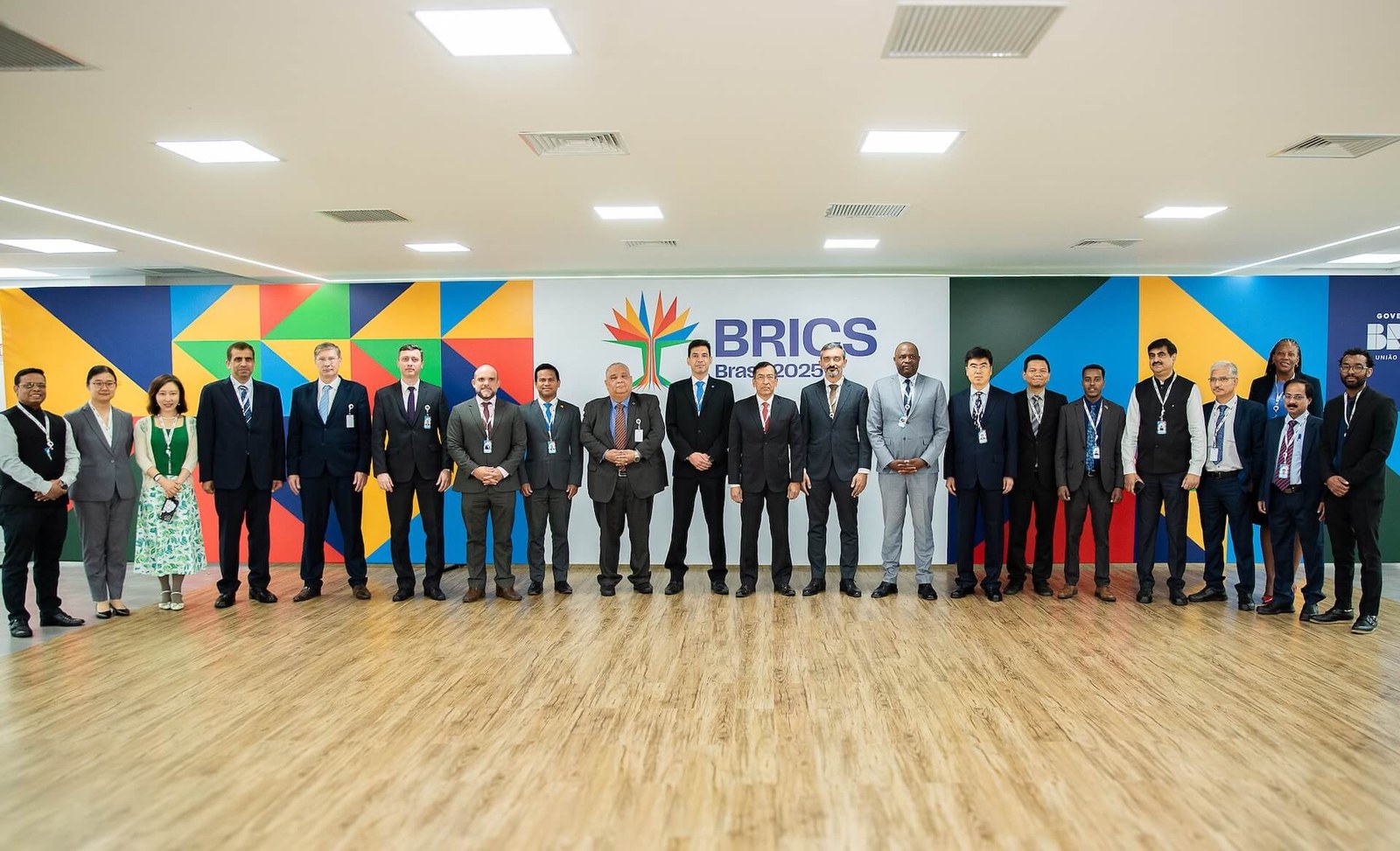BRICS Infrastructure Working Group advances proposals for sustainable transport and a greener economy
Delegations from Brasil and seven other countries discussed urban mobility, energy transition, and economic and social development.

By the Ministry of Ports and Airports (Ministério de Portos e Aeroportos/MPor)
On Monday and Tuesday, May 12 and 13, the Brazilian ministries of Transport (Transportes), Ports and Airports (Portos e Aeroportos /MPor), and Cities (Cidades) took part in another meeting of the BRICS Infrastructure Working Group. The goal was to continue discussions on sustainable and resilient transport and to write the WG's joint declaration—a document to be presented to the ministers of State from member countries on May 14 at the Itamaraty Palace, in Brasília, Brasil.
Throughout this year, the group has been discussing best practices and solutions for urban mobility, more sustainable and inclusive transport, and the collective development of resilient infrastructure—capable of withstanding climate change and extreme weather events—while supporting a swift transition toward a greener and more socially responsible economy.
Delegates shared examples of projects and initiatives already implemented in their countries, illustrating how they are addressing current challenges. Key topics included clean energy and sustainable fuels, open skies agreements and connectivity, sustainable aviation, and a shared commitment to fostering partnerships and collaboration among member countries to exchange experiences and expertise.
The Brazilian Deputy Executive Secretary of Ports and Airports, Fábio Lavor, delivered the opening speech of the Working Group (WG) and emphasized that sustainability is a central focus of the Ministry of Ports and Airports (Ministério de Portos e Aeroportos /MPor). He highlighted, among other initiatives, the decarbonization projects for Brazilian ports, maritime transport, and the progress in adopting sustainable fuels in aviation.
“Climate change has had significant impacts in our country, as seen in the floods in Rio Grande do Sul and the drought in the rivers of the Northern region. Our goal is to provide BRICS countries with tools and protocols for rapid responses to extreme events,” he stated.
Regarding multilateral agreements to enhance connectivity among BRICS countries, Lavor emphasized the importance of creating new air transport routes for both passengers and cargo within the group's member states. "There is significant potential to intensify trade, business, tourism, educational, and cultural exchanges — but, most importantly, social exchanges — among our countries. We must work to strengthen these ties further," he emphasized.